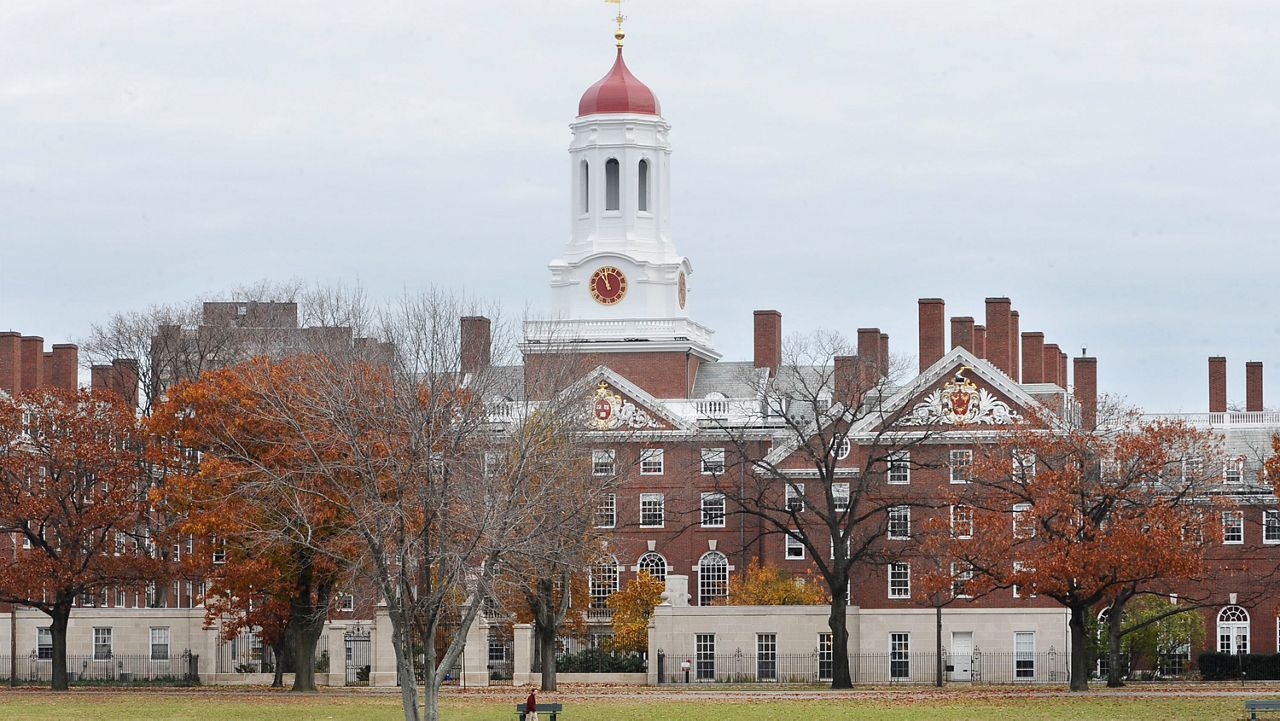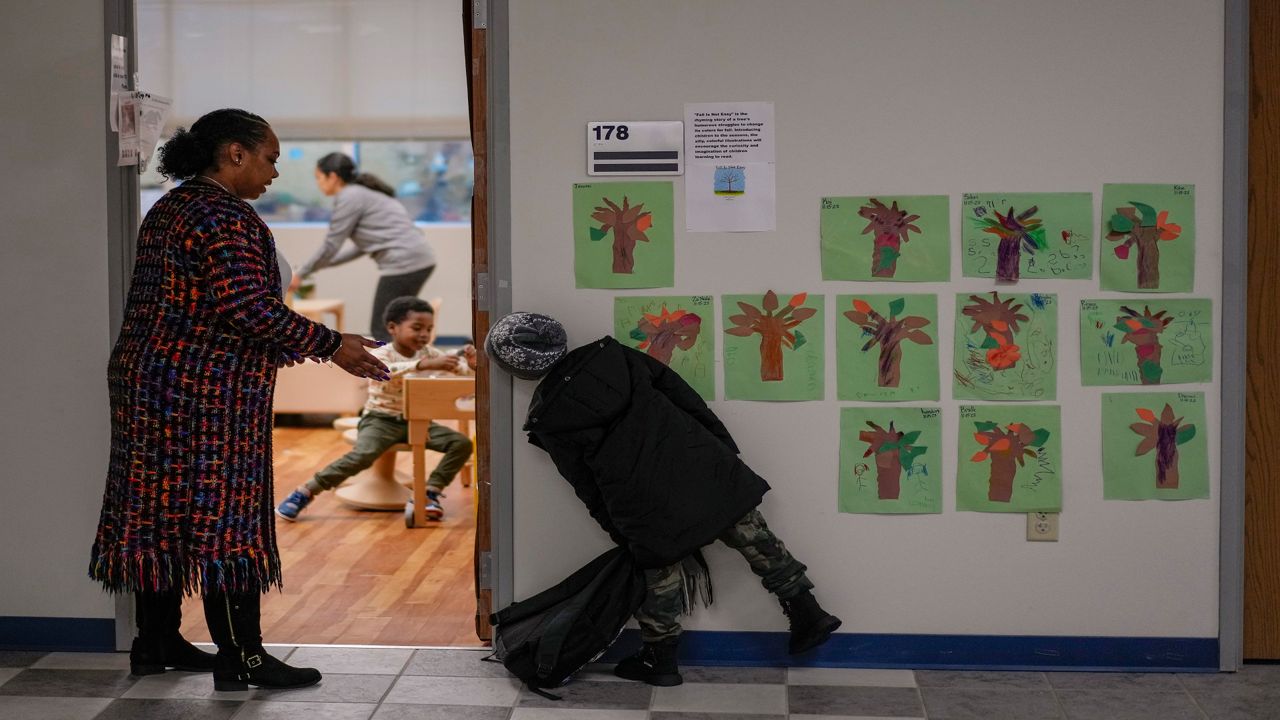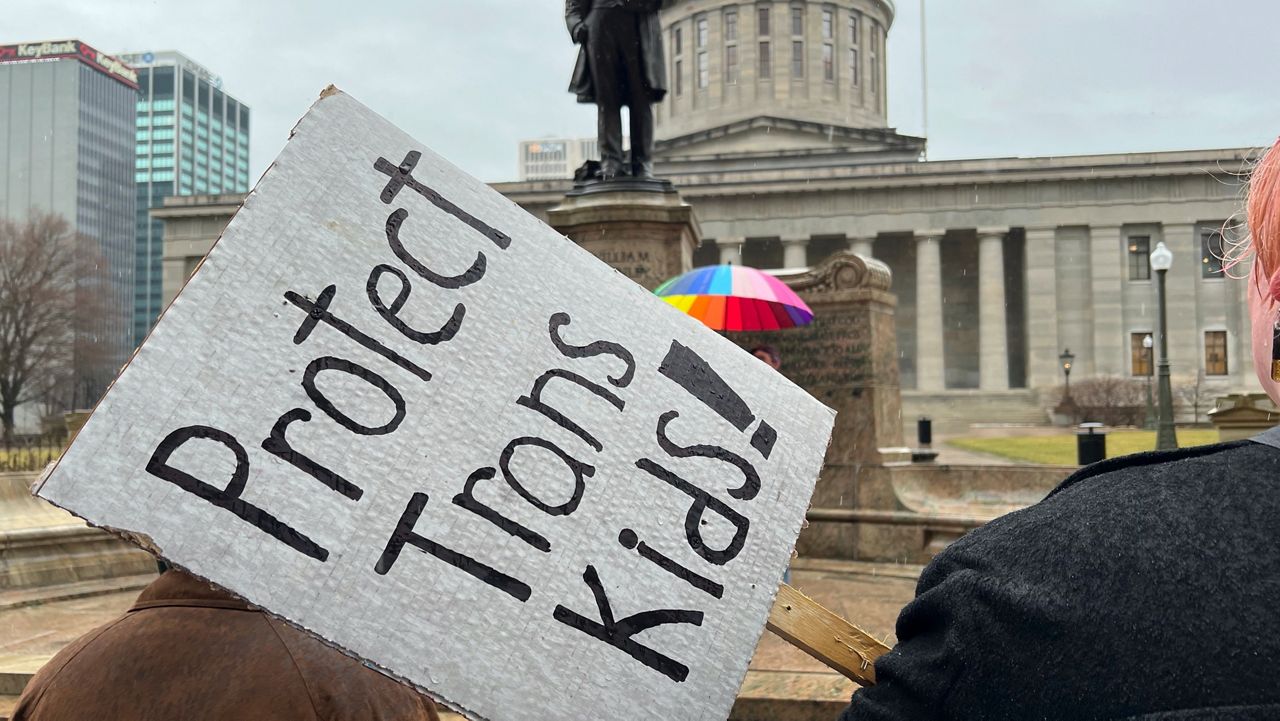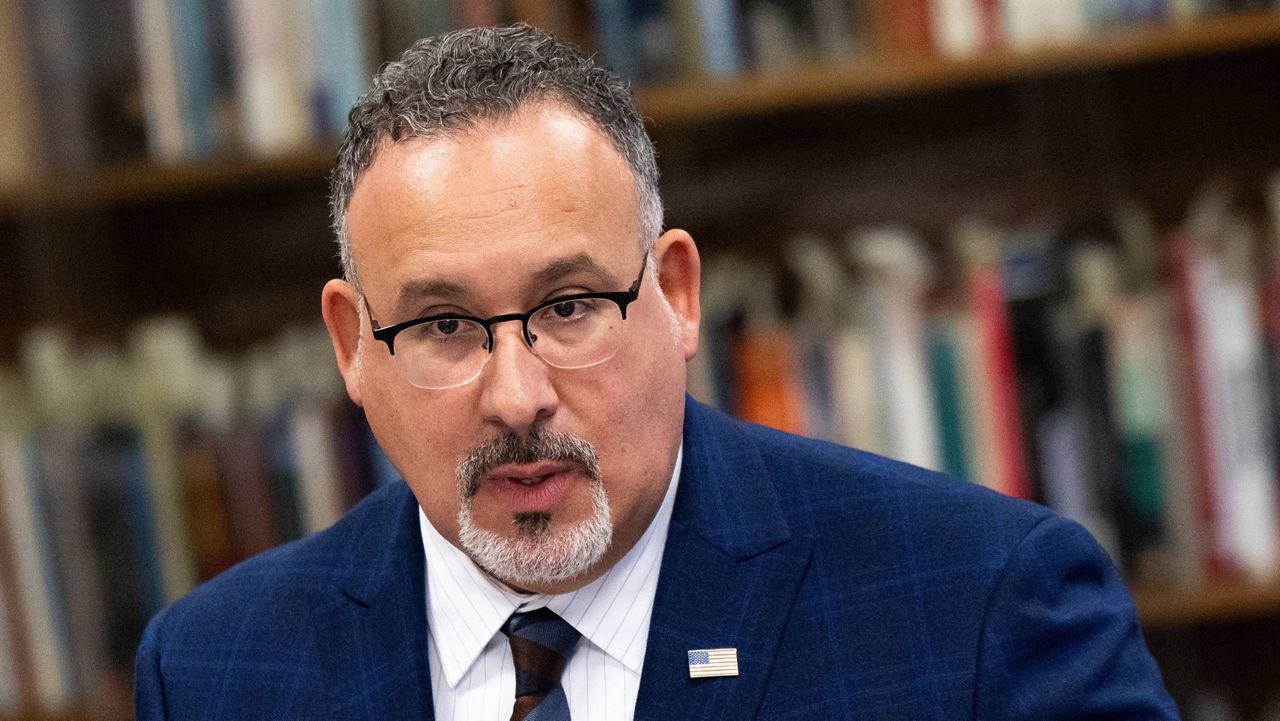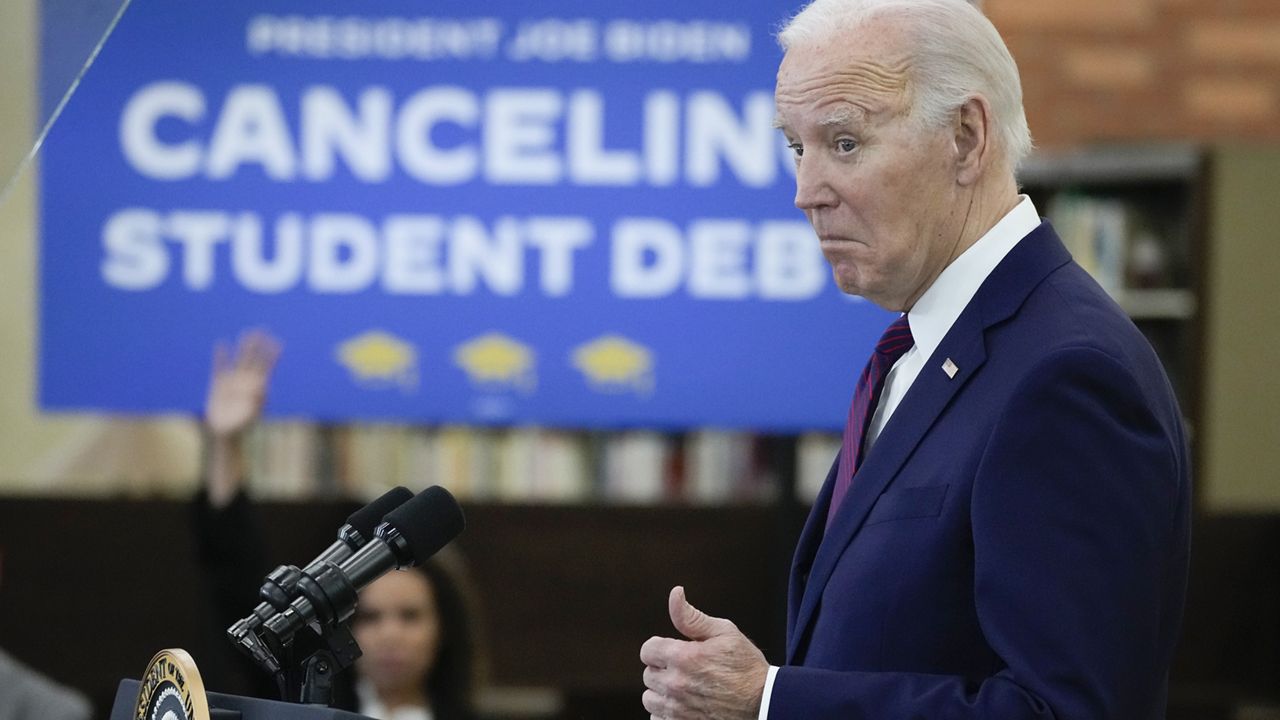In the wake of the Supreme Court's ruling ending race-based college admissions on Thursday, Republicans championed the decision decided by the court’s 6-3 conservative majority as Democrats lamented the end of the decades-long precedent.
"For decades, the Court turned a blind eye as higher education prioritized illegal social engineering over merit,” Senate Minority Leader Mitch McConnell, R-Ky., said in a statement. “Today’s rulings make clear that colleges may not continue discriminating against bright and ambitious students based on the color of their skin.”
Speaker of the House Kevin McCarthy, R-Calif., also celebrated the end of affirmative action, declaring “students will be able to compete based on equal standards and individual merit,” and that the decision “will make the college admissions process fairer and uphold equality under the law.”
Democrats, however, did not have as rosy of an outlook.
Vice President Kamala Harris called the ruling "a step backward for our nation" in a statement, adding the implications will last for decades and "will make it more difficult for students from underrepresented backgrounds to have access to opportunities that will help them fulfill their full potential."
Democratic congressional leaders were also swift to condemn the decision.
“The Supreme Court ruling has put a giant roadblock in our country’s march towards racial justice,” Senate Majority Leader Chuck Schumer, D-N.Y., said in a statement. “The consequences of this decision will be felt immediately and across the country, as students of color will face an admission cycle next year with fewer opportunities to attend the same colleges and universities than their parents and older siblings.”
“The negative consequences could continue for generations,” Schumer warned.
New York Rep. Hakeem Jeffries, the top Democrat in the House and the first Black lawmaker to lead a party in either chamber of Congress, tweeted “right-wing ideologues on the Supreme Court gutted reproductive freedom last year. The very same extremists just obliterated consideration of racial diversity in college admissions.”
Other Democrats demanded reforms to the Supreme Court — “We must expand the Supreme Court,” tweeted New York Rep. Jamaal Bowman — or called for an end to “legacy admissions,” the process of college and universities prioritizing the applications of alumni’s family members, as Rep. Andy Kim, D-N.J., did.
In a long statement, former First Lady Michelle Obama detailed her own academic journey as “one of the few Black students” at Princeton University in the 1980s, when she wondered “if people thought I got there because of affirmative action.”
“But the fact is this: I belonged. And semester after semester, decade after decade, for more than half a century, countless students like me showed they belonged, too,” Obama said. “It wasn’t perfect, but there’s no doubt that it helped offer new ladders of opportunity for those who, throughout our history, have too often been denied a chance to show how fast they can climb.”
Obama rattled off a list of advantages some students have in the admissions process, from alumni family members to access to tutors and high-level athletic training.
“So often, we just accept that money, power, and privilege are perfectly justifiable forms of affirmative action, while kids growing up like I did are expected to compete when the ground is anything but level,” she continued.
In the same statement, her husband, former President Barack Obama, said “affirmative action wasn’t perfect” but that “it allowed generations of students like Michelle and me to prove we belonged.”
In remarks at the White House on Thursday, President Joe Biden said that he "strongly" disagrees with the ruling.
"I believe our colleges are stronger when they're racially diverse," Biden said. "We cannot let this decision be the last word. We cannot change what America stands for."
But his potential GOP rivals competing for their party’s 2024 presidential nomination were quick to tout the ruling. Former President Donald Trump, the race’s frontrunner who helped shape the high court's 6-3 conservative majority, called it “a great day for America.”
“People with extraordinary ability and everything else necessary for success, including future greatness for our Country, are finally being rewarded,” Trump posted on his social media network. “Our greatest minds must be cherished and that’s what this wonderful day has brought. We’re going back to all merit-based—and that’s the way it should be!”
Trump’s biggest competitor, Florida Gov. Ron DeSantis, tweeted the court “has correctly upheld the Constitution and ended discrimination by colleges and universities.”
“Picking winners and losers based on race is fundamentally wrong,” said Nikki Haley, the former U.N. Ambassador and governor of South Carolina, in a statement.
And former Vice President Mike Pence said in a statement he was “pleased that the Supreme Court has put an end to the egregious violation of civil and constitutional rights in admissions processes, which only served to perpetuate racism.” He also boasted of the role he played in getting three of the justices who voted down the policy — Brett Kavanagh, Neil Gorsuch, and Amy Comey Barrett — appointed during the Trump administration.
“As President I will continue to appoint judges who strictly apply the law rather than twisting it to serve woke and progressive ends,” Pence added.
Vivek Ramaswamy, an entrepreneur and conservative firebrand vying for the GOP nomination, went even further, describing affirmative action as “one of the worst failed experiments in American history” and warned universities may adopt “shadow” racial quotas “that benefit perceived ‘marginalized’ groups.”
But Democrats argued affirmative action helped level the playing field for historically disadvantaged groups with fewer access to quality education, extracurricular academic resources, and familial connections.
“People of color often have to work twice as hard and be twice as good just to be considered equal to their peers,” tweeted Rep. Sara Jacobs, D-Calif. “This will make our schools less diverse (when students of color are already underrepresented) and put up more hurdles to social mobility and racial equity.”
“Make no mistake—this decision was *designed* to keep a generation of brilliant Black young people out of higher ed & positions of power,” wrote Rep. Summer Lee, D-Pa. “The young people whose great grandparents were enslaved are the young people who will be shackled by this decision. The cruelty is the point.”
The two universities at the center of the legal challenge — Harvard University and the University of North Carolina — also released statements expressing their disappointment in the ruling. UNC Chancellor Kevin Guskiewicz said his institution “remains firmly committed to bringing talented students with different perspectives and life experiences.”
In a letter signed by Harvard’s outgoing and incoming presidents, provost, executive vice president and the deans of each of its schools, the university promised it will “always be a place of opportunity, a place whose doors remain open to those to whom they had long been closed, a place where many will have the chance to live dreams their parents or grandparents could not have dreamed.”
“In the weeks and months ahead, drawing on the talent and expertise of our Harvard community, we will determine how to preserve, consistent with the Court’s new precedent, our essential values,” Harvard’s leaders wrote.




